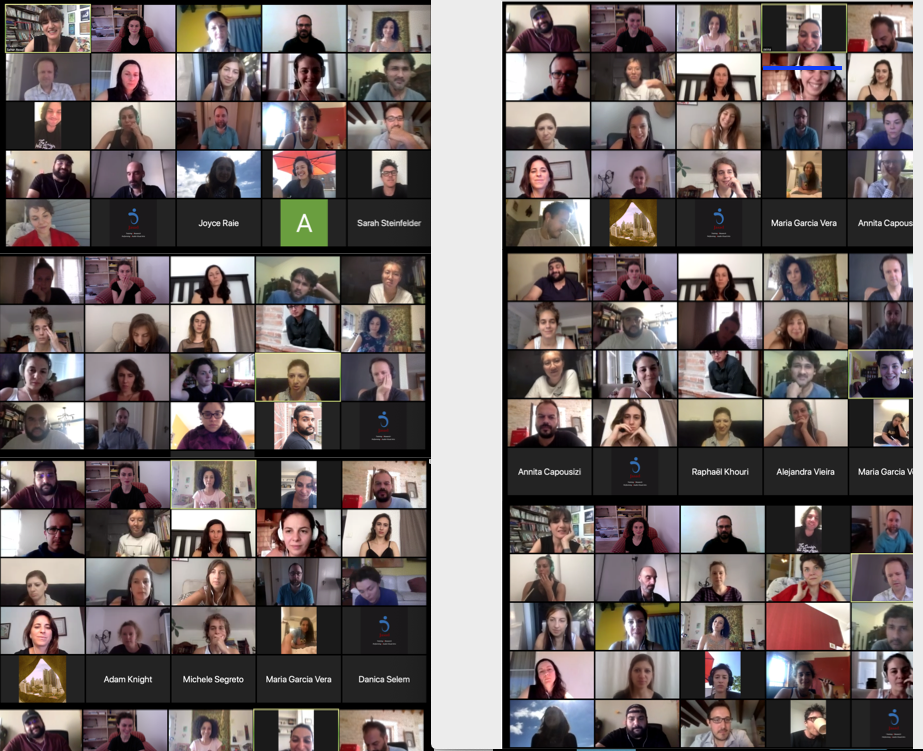SURPASSING BORDERS
Mini Digital Lab July 18 to 22, 2020 held by
Jasad for Performing Arts of Amman, Jordan
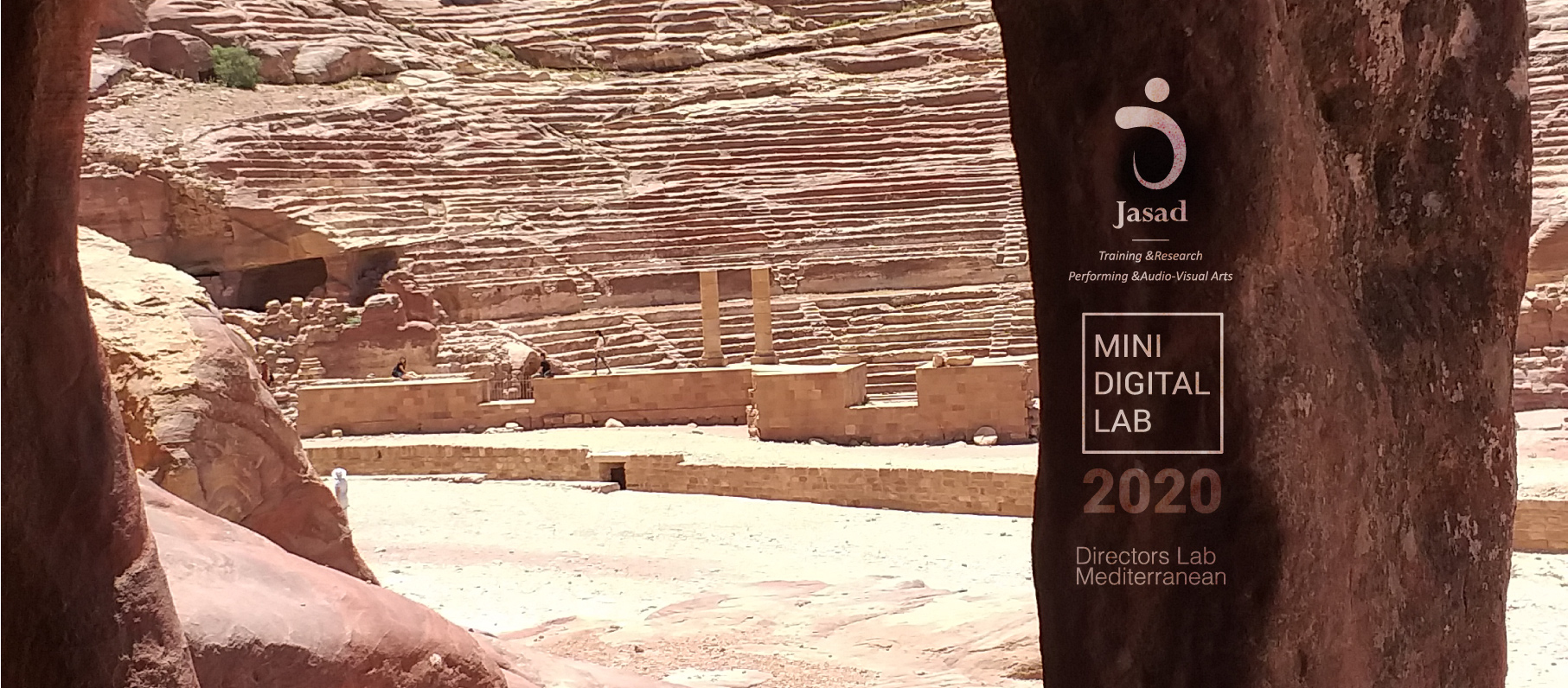
DLM is proud to collaborate this year with Jasad for Performing Arts, who will host the mini digital lab. Jasad (‘the body’ in Arabic) is a theatre company based in Amman, Jordan, and one of the DLM partner organizations. The second edition brought tighter emerging and mid-career directors from Greece, U.S, Panama, Australia, Bahrain, Jordan, India, Kuwait, Sweden, Germany, Ecuador, Romania, Palestine, Tunisia, Italy, Peru, South Korea and France.
LAB PARTICIPANTS
Danica Selem, U.S.
Eleni Zachopoulouy, Greece
Eddie Dehais, U.S.
Arturo Wong, Panama
Adam Knight, U.S.
Maria Garcia Vera, Spain
Dan Graham, Australia
Anna Serlenga, Italy
Jessica Helton, U.S.
Ahmed Ashour, Bahrain
Swetanshu Bora, India
Shareen Haje, Kuwait
Amahl Khouri, Germany
Santiago Campos, Ecuador
Sundar Siddhanth, India
Jeroni Obrador, Spain
Monica Oliva Grecea, Romania
Michele Segreto, Italy
Hanin Taraby, Palestine
Marwa Manai, Tunisia
Anmar Tahar, Sweden
Sarah Joanna Steinfelder, Germany
Alejandra Vieira, Peru
Hyeonjy Park, South Korea
Joyce Raie, Jordan
RaluCa Urea, Romania
Noelle Ghoussaini, U.S.
Ronn Burton, U.S.
Lena Osseyran, France
Phaedra Soutou, Greece
Shared Sessions
Discover, Awaken, Perform
Joyce Raie. Jordan
This session aims at introducing the participant to a psychophysical training process through the use of Asian meditation and martial arts created by Phillip B. Zarrilli
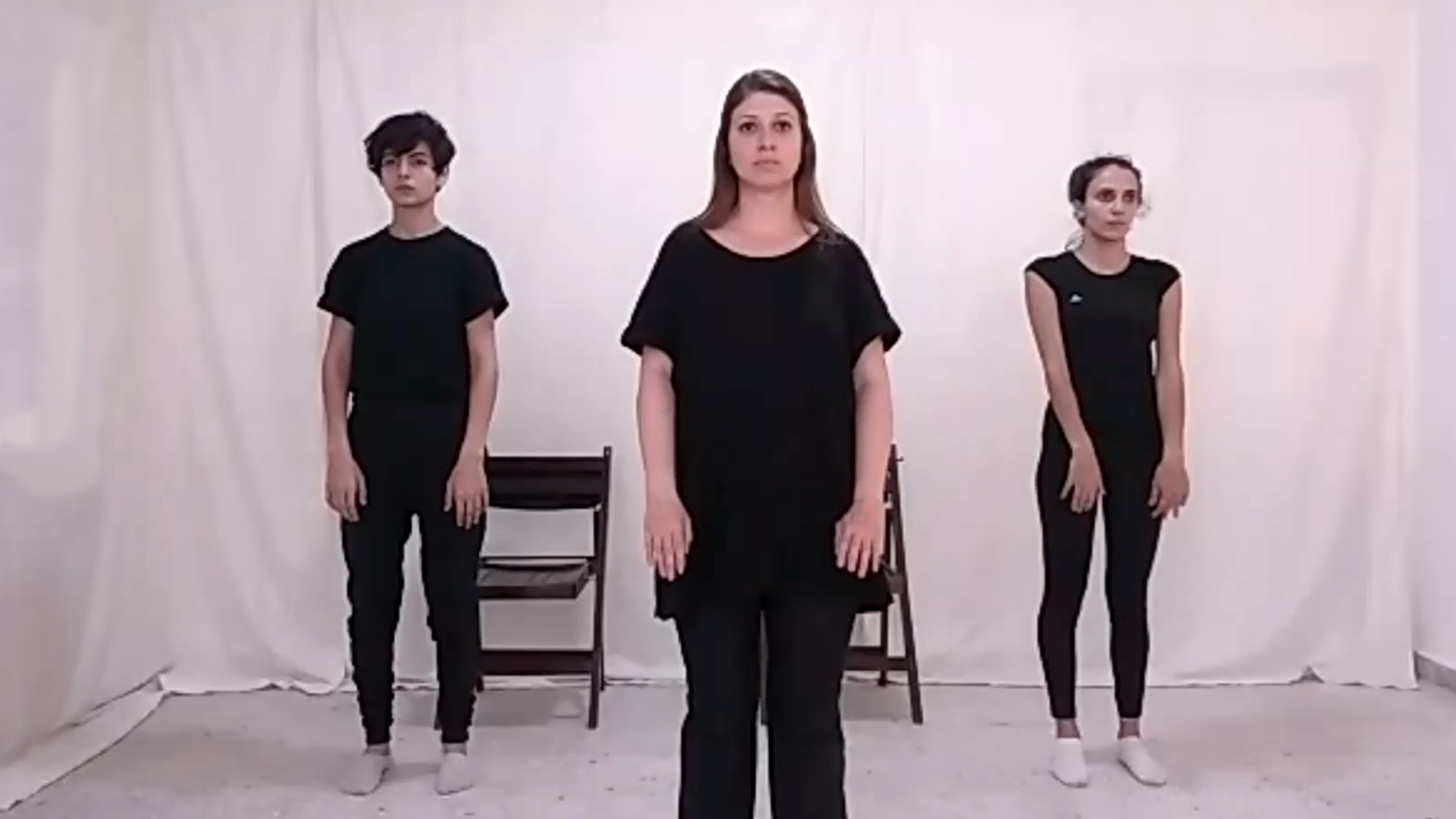
Disability in Theatre
Anna Capousizi in conversation with Dan Graham
DLM co-Founder and Member of the Steering Committee Anna Capousizi will lead a conversation with Dann Graham about his work as an artist with Neuro-diverse disability. Disability in Theatre. DLM Co-Founder and Member of the Steering Committee Anna Capousizi will lead a conversation with Dann Graham about his work as an artist with Neuro-diverse disability. Anna Capousizi as a director and instructor of inclusive performing arts, having established an acting method- ‘a neurological approach on acting’- for people with neuromuscular disorders trained to be actors, will interview Dann Graham on how terminology, ‘political correct’, professionalism, education, accessibility is regarded for people with disabilities that are or want to become professional artists.
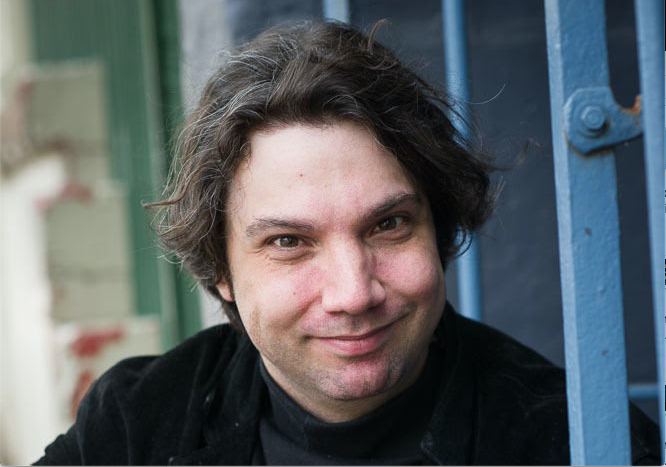
Indeterminacy and Chance as Artistic Practice
Eddie DeHais. U.S
How do you get your brain out of the room when generating material? How can you open yourself up to the discoveries that emerge by accident? How can you pull yourself away from your likes/dislikes and directorial habits? This one-hour session will be a basic lesson in indeterminacy and an exploration of the collision between chance and intention.
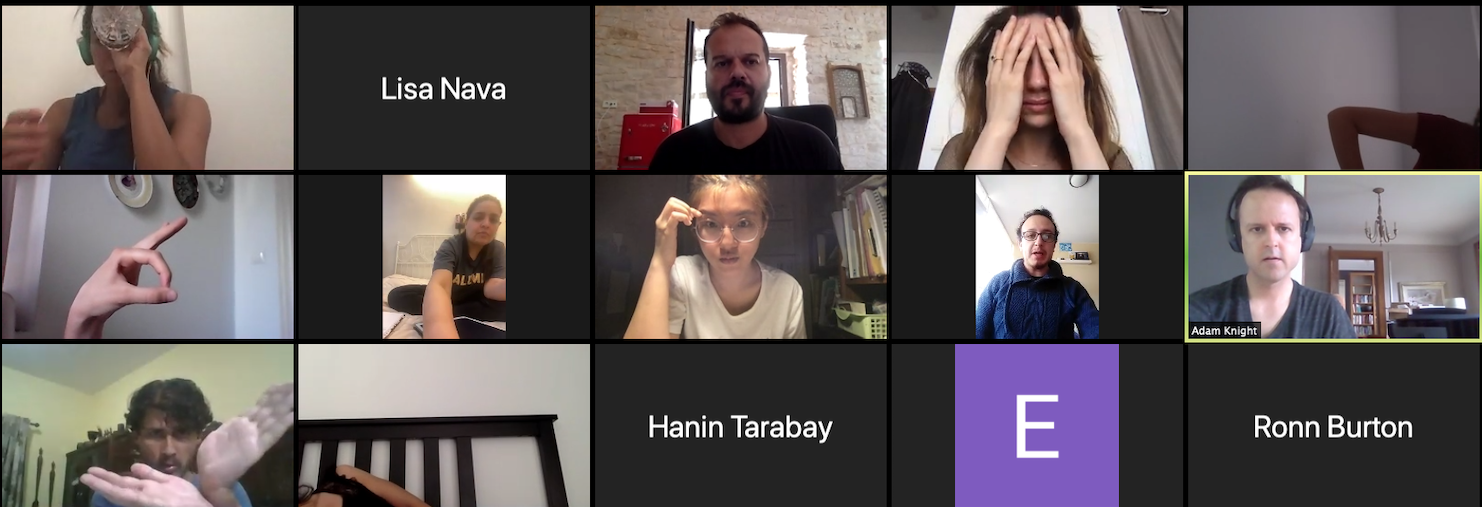
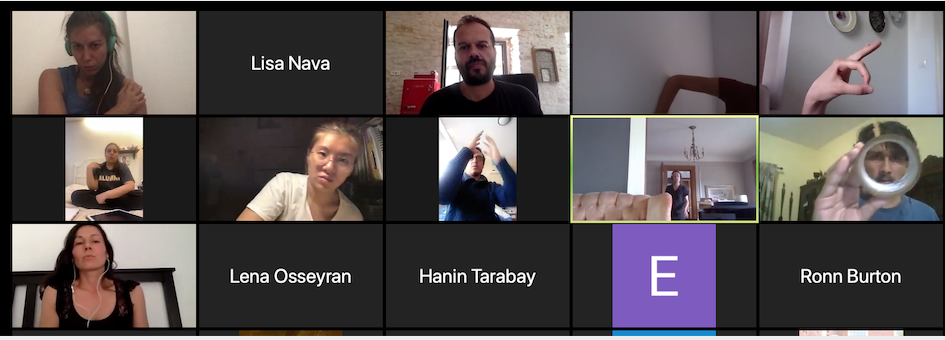
Theatre Post Covid-19: The Experience of South Korea
Hyeonji Park. South Korea
Most theatres in Seoul, South Korea have been closed for quarantine in compliance with the government policy. All performances have also been cancelled but some productions are considering streaming service through YouTube or other platforms. Some of the questions we will ponder in this session are: “What is theatre? How can we keep working as theatre makers? If this pandemic situation persists, can we even exist?” The presenter will share the experience of the Korean National Theatre as part of the discussion.
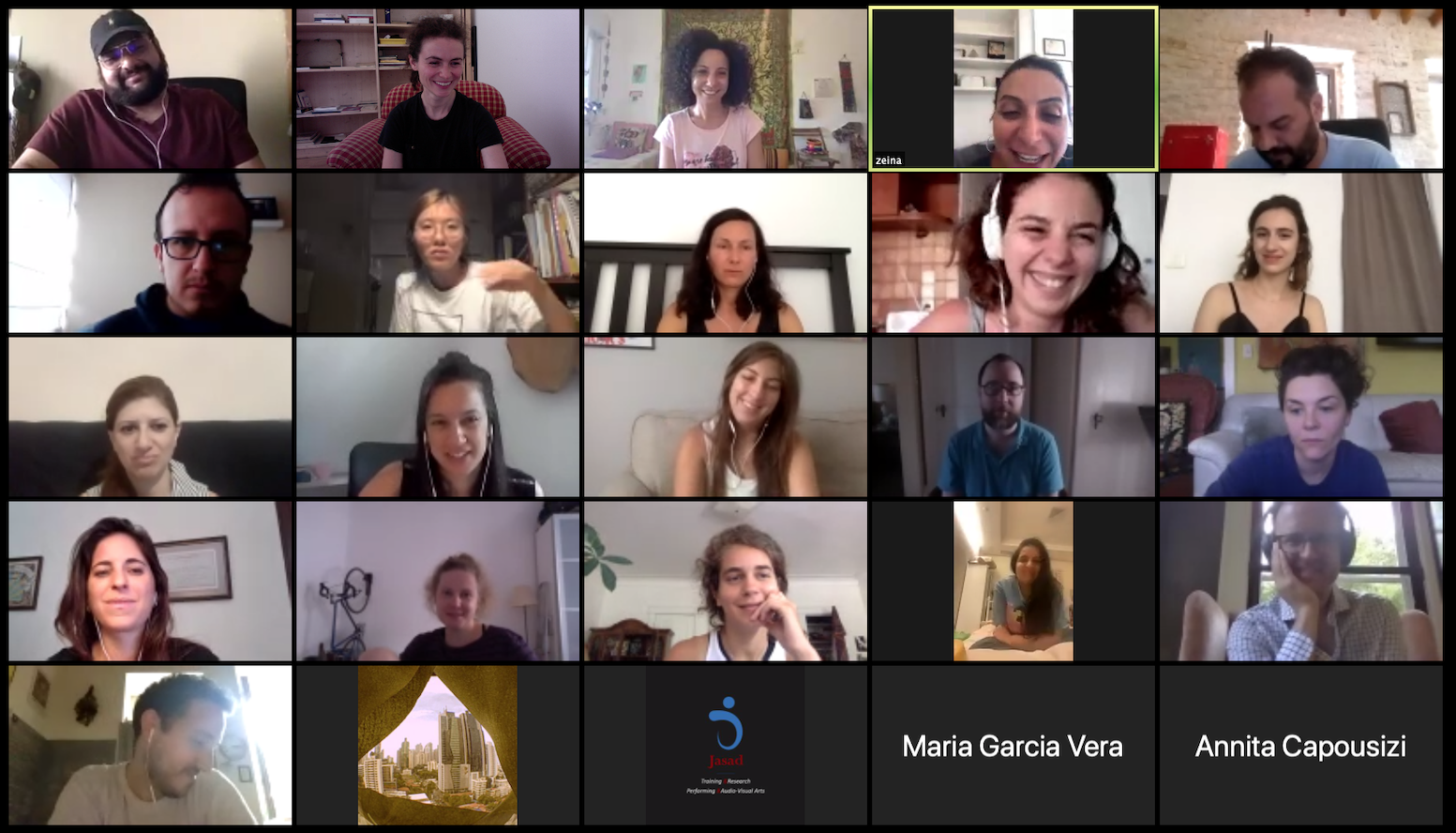
Out of the bubble: Art Intervention
Monica Olivia Grecea. Romania
The session participants will investigate ways of getting out of the like-minded artist and audience bubble for projects tackling social issues, speaking either from previous experience or imagining potential strategies. Examples of social issues: aggressions against women and the patriarchal context enabling them; the debate around sex education in schools; tackling hate speech online (among other topics to be advanced by the participants). In what ways can we engage those outsides of our bubble? Is theatre enough?
About the Mood
Jeroni Obrador. Spain
- Recognize the emotion in a way where we can manipulate it.
- Recognize the feeling of that emotion.
- How to create our emotional world in a human dependent relationship.
- Talking about the mood.
The Embodiment of Space
Lena Osseyran. Lebanon
Lena Osseyran will be sharing a methodology she is working on to weave two disciplines together, namely Performing arts and Architecture. The links between sciences, performing arts, and architecture are developing in many directions. From one point of view, our observations might help us understand more the process of perception and space; it can be with the help of cognitive sciences. In another sense, the experiments of design give us feedback about our emotions, which helps in refining the design of new physical atmospheres (for actors and directors) and thus exploring new ways and properties for such representations.
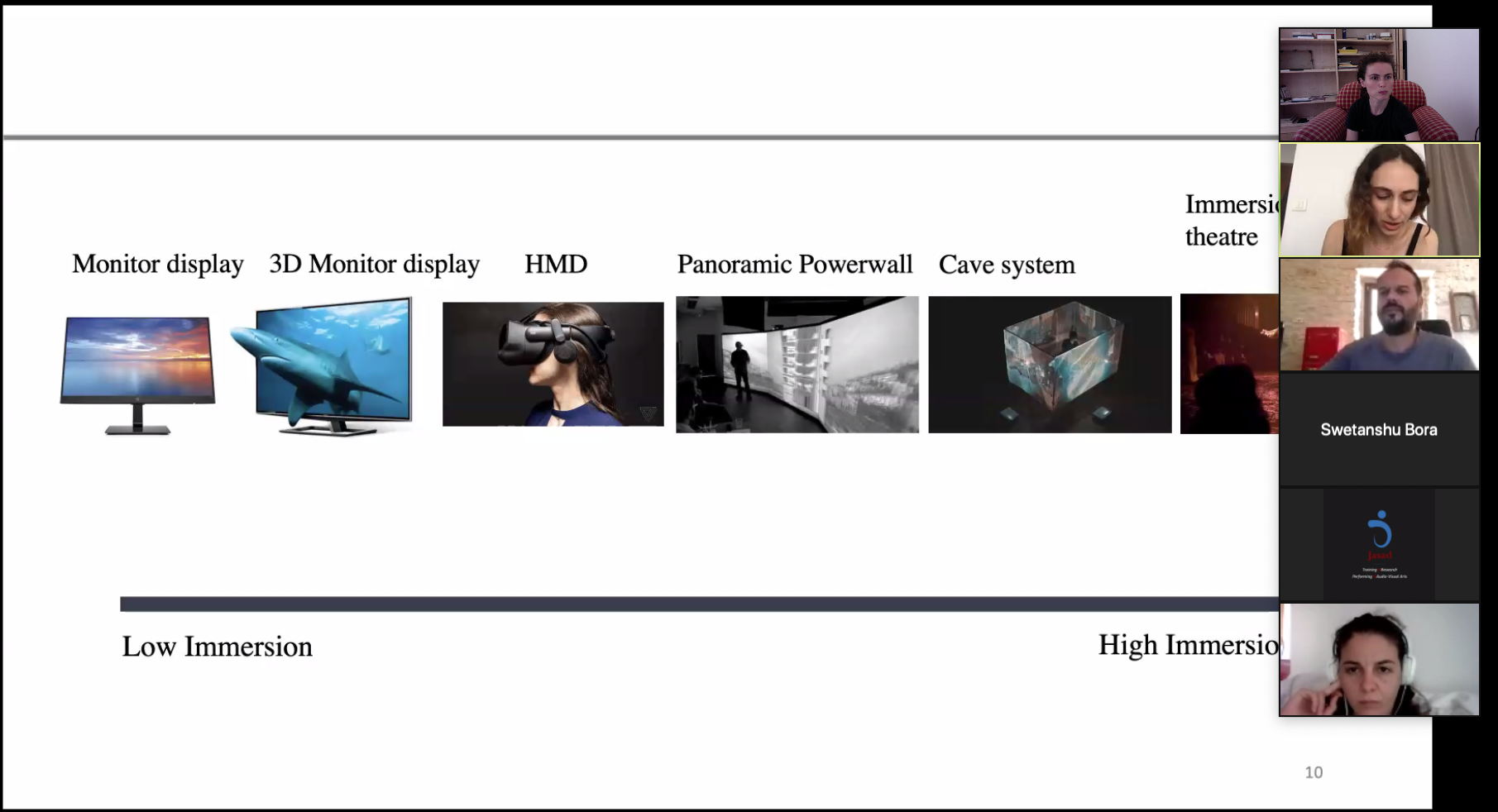
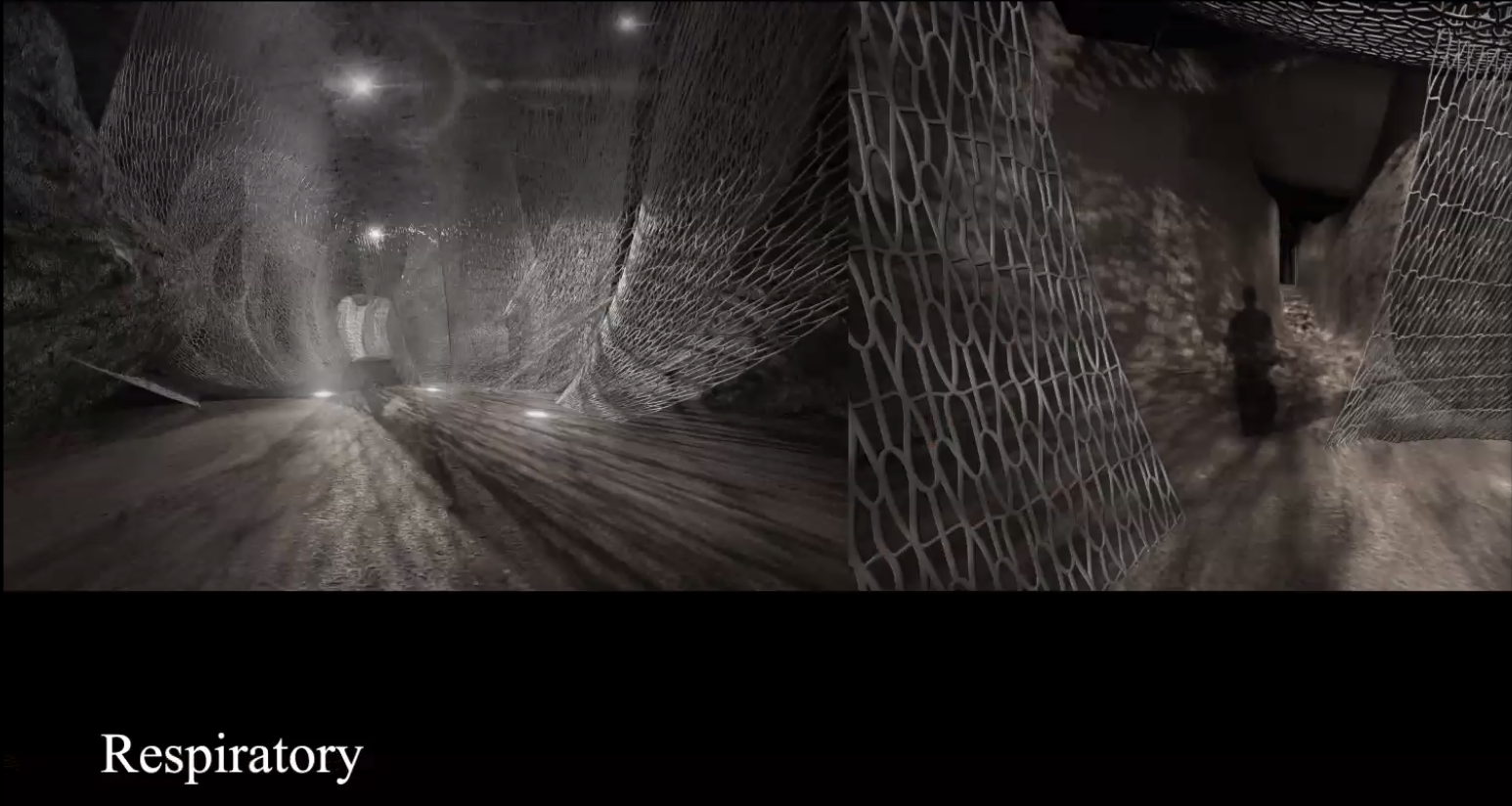
Alba Technique
Ronn Burton. U.S.
Alba Technique, a neuroscience-based modality that explores the physicality of human emotion. According to the neuroscience research, the theory is there are 6 neurologically basic human emotions. Each basic emotion has its own Pattern of physical attributes – specific breathing, postural, and muscular tensions that inspire an in-the-moment response: an emotion. Working with all the aspects of a Pattern in your body, you can enter into any emotional state at will and then Step Out of the emotional state, returning to a neutral, healthy state of mind and body. (visit www.AlbaTechnique.com and www.AlbaMethod.com to learn more.)
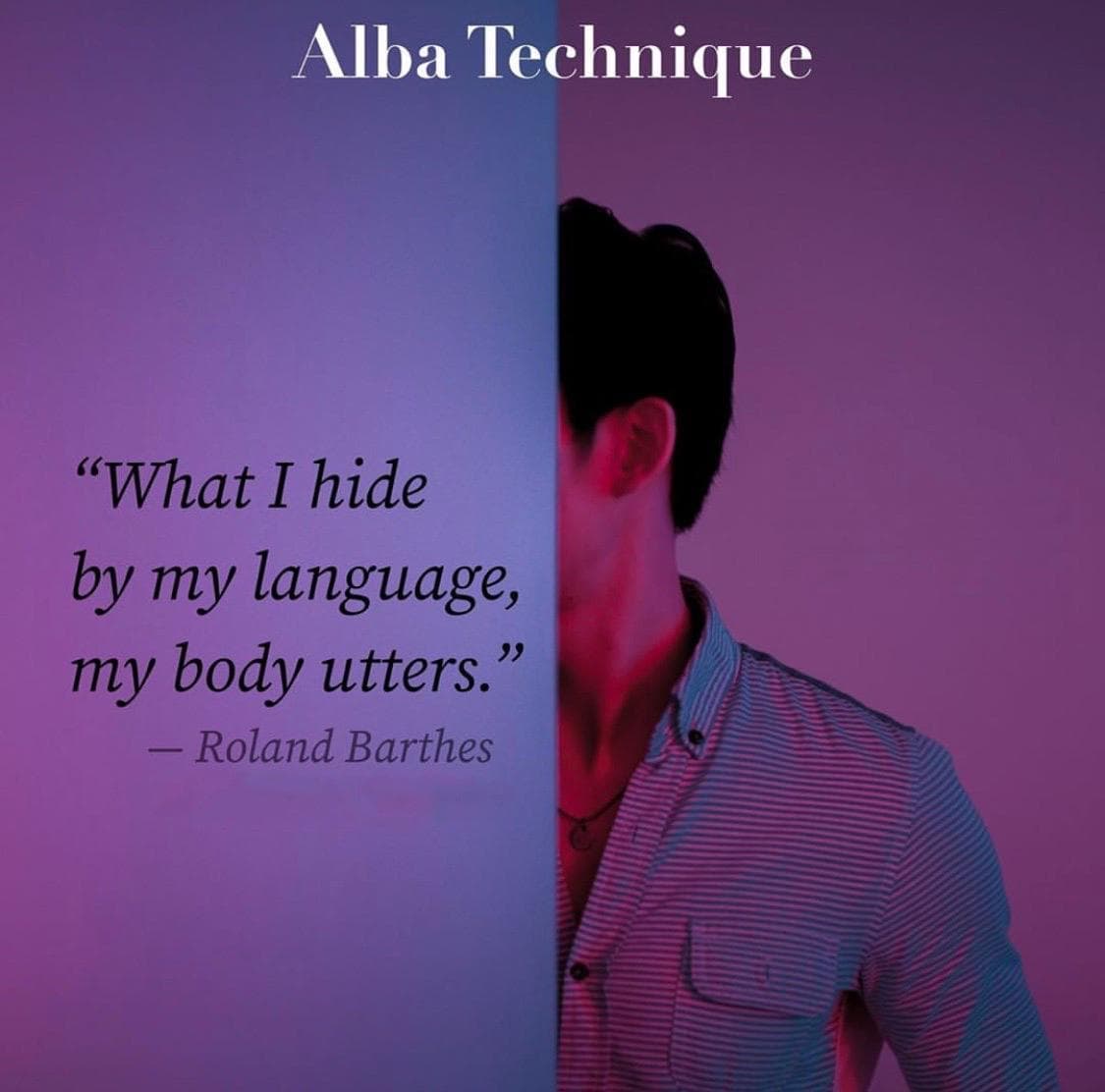
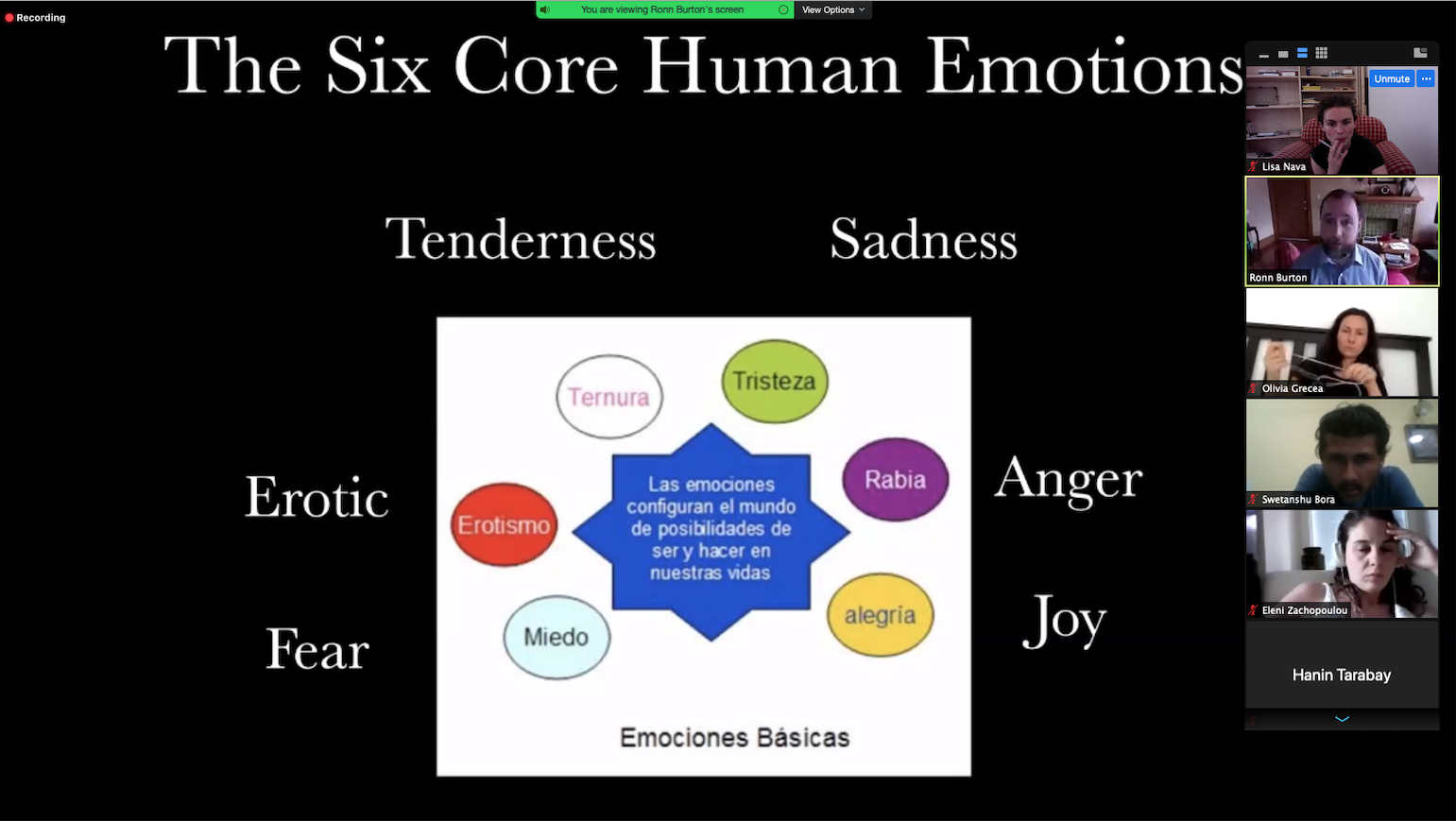
An Intercultural Approach to Theatre
Raluca Urea. Romania
How does one do theatre in multiple languages across multiple cultures, countries, and nationalities? Who are these performances for? What does this type of theatre bring to the world? Duration: one hour- Intend to do 30-45 min of sharing my practices with the group, maybe do one practical exercise, and then Q&A.
Theatre (is) in a Crisis
Ahmed Ashour. Bahrain
” What is Theatre’s Responsibility Towards Helping with Global Crises, and How Can We Use Civic-Engaged Theatre to Reimagine Current Systems? In this workshop/conversation, we start from a place of addressing the question, “Is theatre in a crisis? If so, what is its responsibility towards other crises – the health crisis, the food crisis, the racial injustice crisis, etc.?” We explore what it means for artists to hold themselves responsible to the world around them, and think of ways in which we as directors can be active parts in facilitating spaces that deal with crises. Is the director meant to facilitate a piece of work for the creative team/audience and make it digestible, or is the director responsible for challenging the creative team/audience with their work as it relates to the world we live in? The artist will introduce the four different tactics (Imaginative, Expressive, Connective, and Critical) that have helped him think about civic-engaged work.
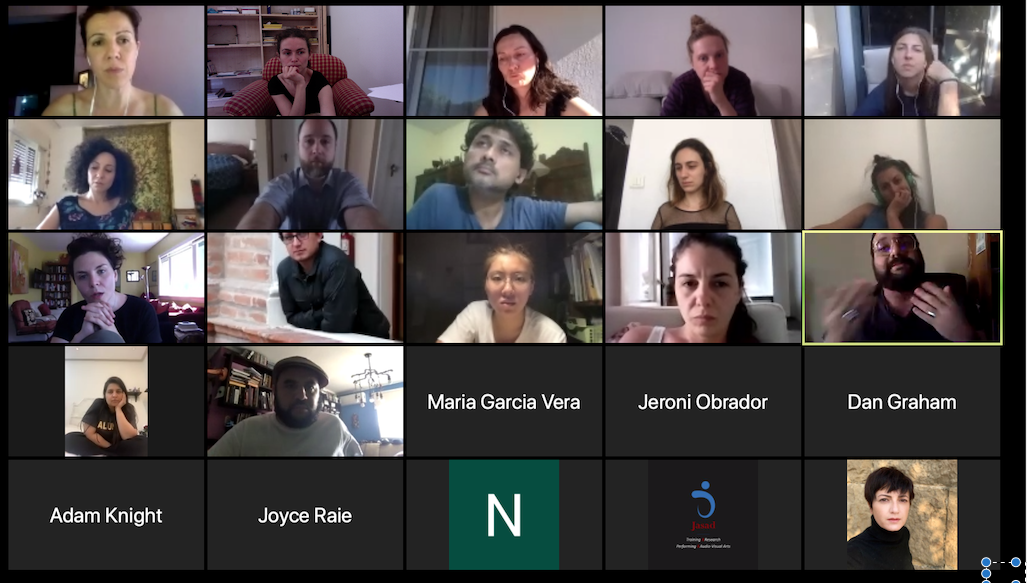
Guest Artists
Contained Chaos: TITANS
Euripides Laskaridis. Greece
Euripides Laskaridis will speak about his work and his rehearsal process in a two-hour discussion with the lab participants. Euripides uses notions of ridicule and transformation to explore the perseverance of humankind in the face of the unknown. Unconventional and non-linear its plays with the possibilities of what lies all around – breaking distorting, reforming and fiddling with commonplace materials and the detritus of everyday life to create the unexpected. The body is the medium through which Euripides’ spaces come to life. His work is marked by a sense of contained chaos: deep and detailed dives that tap into who we are by staying true to the specifics of a most personal vision. The artist will share his work, TITANS (2015), on a Vimeo link for the lab participants’ private viewing prior to the session.
The Hero’s Journey: Drama Therapy in Lebanese Prisons
Zeina Daccashe. Lebanon
Drama Therapy in Lebanese Prisons. Zeina Daccashe will share the documentary 12 Angry Lebanese based on a drama therapy project with the inmates of Roumieh prison (a notorious Lebanese prison) on a Vimeo link for the lab participants to watch before the session. About 20 minutes of the session’s time will be dedicated to a Q and A session about the film/project. Then Zeina will give the participants a chance to go through a wonderful technique which she implements with the inmates: ‘The Hero’s Journey’. The technique allows us to come into contact with our own internal call for transformation – to listen to the call from our deepest self. The Hero is the potential of every human being to respond to that call. Returning to the world of everyday life we explore how this inner transformation can continue to work in our lives beyond the workshop.
GROUP PHOTO 2020
